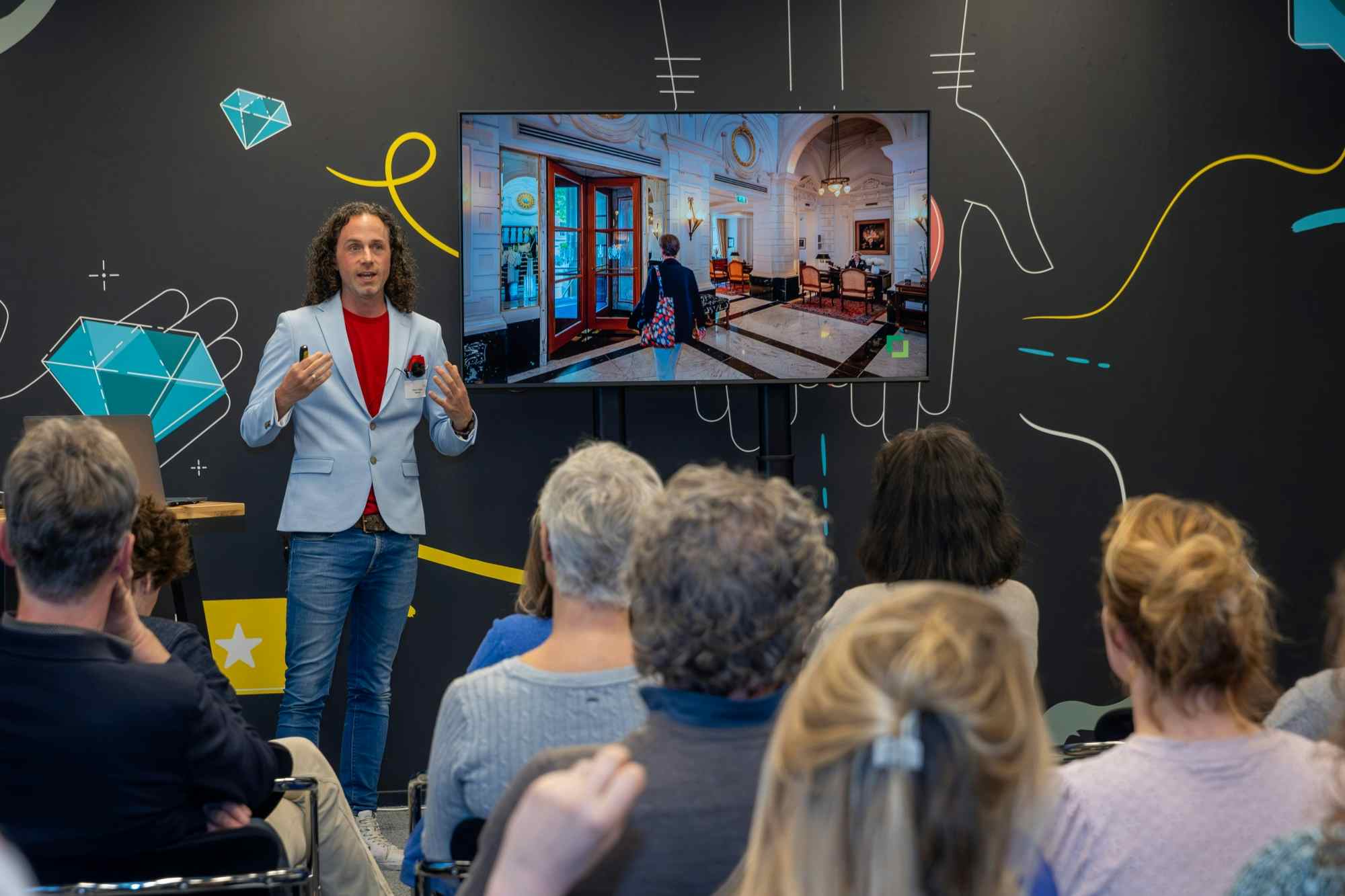Victor Visser of Informaat talked about his experiences with values-driven design at Boon Edam, producer of 'entrance solutions'. These include revolving doors, entrance gates and security doors. Once started as a maker of wooden swing doors, Boon Edam has grown into a company with 20 subsidiaries, over 1,300 employees and more than 55 distributors worldwide.

Despite adding more and more digital technology to the products themselves, when it comes to digital services, it still lags a bit behind. And therein lies one of the key challenges: how can Boon Edam stay relevant in this rapidly changing digital world?
The solution was a 'simple' circuit board for new and existing doors and gates. This made it possible to configure or control products remotely. A dashboard collects and displays all the data. So you can see which gate is working or not, what is broken, and so on.
The differing values of two target groups, represented in personas Jos Sleutelbos and Felicity Facility, helped to visualise customer needs. For instance, Jos wants the gates to 'just work' while Felicity is much more concerned with themes such as performance improvement, sustainability and smart buildings. And these values were translated into a concrete value proposition, service processes and a customer application.
Whereas previously, when a breakdown occurred, a mechanic had to go on site to analyse the problem, return to the workshop to pick up a part and then head back to the customer, now a problem can be read immediately and the mechanic can go to the customer with the right part. So you halve the number of trips. Good for the environment, lower costs for BoonEdam and a satisfied customer who is helped faster and more efficiently.
And in the long run, the customer can benefit from advantages such as predictable maintenance, smart spare part use continuous performance improvement in terms of hospitality, security and sustainability.
So Jos and Felicity's values are cleverly combined for short- and long-term solutions.




